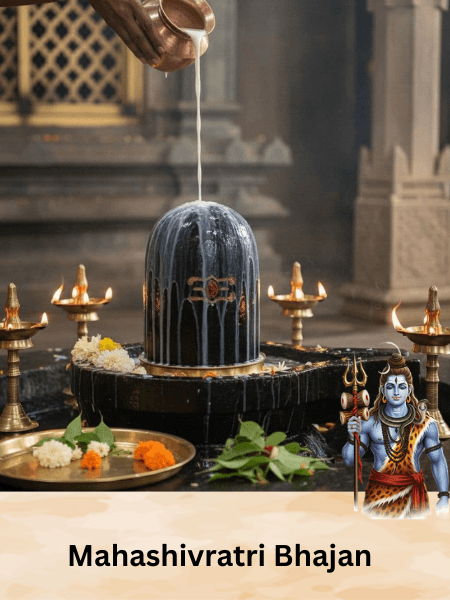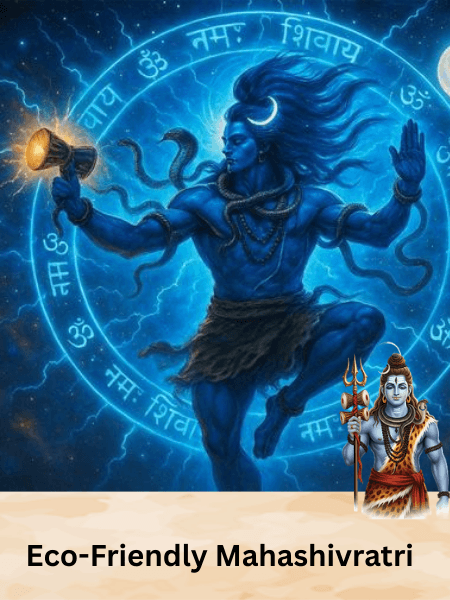
Vrishabha Sankranti 2025
When is Vrishabha Sankranti 2025? Learn about the date significance puja rituals and why this day is considered auspicious for new beginnings and spiritual growth
When is Vrishabha Sankranti ?
According to the Hindu calendar, Vrishabha Sankranti marks the first Sankranti of the Hindu year. Just as there are 12 months in a year, there are also 12 Sankrantis. In Vedic astrology, the day when the Sun transits from one zodiac sign to another is referred to as Sankranti. This month, on Thursday, 15th May 2025, the Sun will move from Aries (Mesha) to Taurus (Vrishabha).
Auspicious Timings for Vrishabha Sankranti:
-
Date: Thursday, 15th May 2025
-
Punya Kaal (Auspicious Period): 05:27 AM to 12:13 PM
-
Duration: 6 hours 47 minutes
-
Maha Punya Kaal (Highly Auspicious Period): 05:27 AM to 07:42 AM
-
Duration: 2 hours 16 minutes
-
Exact Moment of Sankranti: 12:21 AM
Vrishabha Sankranti Muhurat Details:
-
Sankranti Karana: Gara
-
Sankranti Day: Wednesday
-
Observed Date: 15th May 2025
-
Transit Date: 15th May 2025
-
Sankranti Moment: 12:21 AM, 15th May
-
Sankranti Ghati: 45 (night time)
-
Sankranti Moon Sign (Chandra Rashi): Scorpio
-
Sankranti Nakshatra: Jyeshtha (classified as “Daruna”)
Vrishabha Sankranti Panchang:
-
Brahma Muhurat: 04:03 AM to 04:45 AM
-
Morning Sandhya: 04:24 AM to 05:27 AM
-
Abhijit Muhurat: 11:46 AM to 12:41 PM
-
Vijaya Muhurat: 02:29 PM to 03:23 PM
-
Godhuli Muhurat: 06:59 PM to 07:20 PM
-
Evening Sandhya: 07:00 PM to 08:03 PM
-
Nishita Muhurat: 11:52 PM to 12:34 AM (16th May)
What is Vrisabha Sankranti ?
Each month of the year brings a unique Sankranti, each with its special significance. Vrishabha Sankranti is one such important day in the Hindu religion. Let’s understand:
-
What is Vrishabha Sankranti, and why is it celebrated?
-
What is the significance of Vrishabha Sankranti?
-
What are the benefits of observing this Sankranti?
What is Vrishabha Sankranti, and why is it celebrated?
In the Hindu calendar, Vrishabha Sankranti is considered the second Sankranti of the year. Each month, the Sun changes its position and enters a new zodiac sign. During the month of Jyeshtha, the Sun enters the sign of Taurus (Vrishabha), and this transition is celebrated as Vrishabha Sankranti. "Vrishabha" means bull, and the bull (Nandi) is the divine vehicle of Lord Shiva. Therefore, offering water to Nandi Maharaj on this day is believed to be highly auspicious and rewarding.
What is the Significance of Vrishabha Sankranti?
According to Hindu scriptures, Vrishabha Sankranti holds great spiritual importance. Observing a fast, offering prayers to the Sun God, and engaging in charity on this day bring immense blessings. People who suffer from astrological doshas (flaws) related to the Sun in their birth chart are especially advised to worship the Sun God on this day. This helps reduce obstacles in career, business, and relationships with one’s father.
What Are the Benefits of This Sankranti?
-
Offering water to the Sun God and chanting Surya mantras after a morning bath grants eternal spiritual merit (Akshaya Punya).
-
Worshipping Lord Vishnu and Goddess Lakshmi on this day brings desired results and ensures their lifelong blessings.
-
Praying to Surya Dev on this Sankranti supports physical and mental well-being.
-
Feeding cows to their satisfaction on this day brings wealth, prosperity, and good fortune.
-
Performing holy baths, charity, and ancestor offerings (Tarpan) during the auspicious period brings peace, harmony, and prosperity to the household.
Do’s & Don'ts of Vrisabha Sankranti
According to Vedic astrology, the entry of the Sun into a new zodiac sign is known as Sankranti. Thus, when the Sun enters the zodiac sign of Taurus (Vrishabha), it is called Vrishabha Sankranti. While worshipping the Sun God on this day brings numerous blessings, certain actions are considered forbidden during Vrishabha Sankranti. Let’s explore:
-
What should be done on Vrishabha Sankranti?
-
What should be avoided on Vrishabha Sankranti?
What Should Be Done on Vrishabha Sankranti?
-
On Vrishabha Sankranti, one should bathe early in the morning during Brahma Muhurat. If possible, taking a dip in the Ganges or any other holy river brings immense spiritual benefits.
-
If you are unable to bathe in a sacred river, mix Ganga water and red sandalwood in your bath water. This is believed to grant the same merit as bathing in the Ganges.
-
After bathing, offer water (Arghya) to the Sun God and worship Him.
-
Following the Sun worship, donate items like footwear, clothes, and food grains. Bathing and donating on this day help in relieving planetary afflictions and chronic diseases.
-
Worshipping the Sun God during this period is especially fruitful. Those with an inauspicious Sun in their birth chart are advised to perform special Sun worship during this time.
What Should Not Be Done on Vrishabha Sankranti?
-
Although Vrishabha Sankranti marks the beginning of auspicious timings for many ceremonies, do not start any important or sacred task without checking the proper Muhurat and Panchang (astrological calendar).
-
In Hinduism, honoring one’s father is considered highly virtuous—especially on Vrishabha Sankranti. Disrespecting one’s father on this day is believed to weaken the Sun’s influence in one’s horoscope.
-
Do not hurt or ignore the needs of the poor or needy on this day. Instead, engage in charity as per your capacity.
-
Avoid sleeping late after sunrise, as it is considered inauspicious and may invite obstacles in life. Make sure to wake up early and begin the day on a positive note.
5 Benefits of Vrishabha Sankranti
Vrishabha Sankranti, the day when the Sun enters the zodiac sign of Taurus, holds deep spiritual significance in Hinduism. Observed in the month of Jyeshtha, this Sankranti marks a time of purification, devotion, and charity. Engaging in sacred rituals and mindful actions on this day is believed to attract divine blessings.
Here are five powerful benefits of observing Vrishabha Sankranti:
1. Brings Auspicious Results Through Sun Worship
Worshipping Surya Dev (Sun God) on Vrishabha Sankranti is highly beneficial for those facing challenges related to career, health, or authority. Offering water (Arghya) to the Sun and chanting Surya mantras during sunrise helps:
-
Strengthen the position of the Sun in your horoscope
-
Eliminate negativity and ego
-
Improve confidence and leadership qualities
2. Helps in Overcoming Planetary Doshas
Individuals suffering from Sun-related doshas in their birth chart can find relief by performing special remedies on this day. Rituals such as:
-
Donating red items
-
Feeding cows
-
Offering prayers to Surya Dev
are believed to reduce malefic effects and bring astrological balance.
3. Attracts Wealth and Prosperity
Worshipping Lord Vishnu and Goddess Lakshmi on this day is said to bring abundance, prosperity, and financial stability. Devotees perform puja and offer sweets, flowers, and incense to seek:
-
Growth in business
-
Stability in income
-
Long-term wealth and fortune
4. Promotes Mental and Physical Well-being
Vrishabha Sankranti is an ideal time for cleansing and healing. A ritual bath (especially in sacred rivers or with Ganga jal at home) followed by Surya worship promotes:
-
Mental peace
-
Physical strength
-
Freedom from chronic ailments
This day is considered spiritually energizing and purifying.
5. Fosters Family Harmony and Good Karma
Performing charity, feeding the poor, and offering respect to elders—especially to one's father—on this day helps in:
-
Strengthening family bonds
-
Inviting peace and joy at home
-
Accumulating divine merit (punya) for yourself and your ancestors
In Conclusion: Vrishabha Sankranti is not just a date on the calendar—it's an opportunity to reconnect with divine energies, clear karmic blocks, and realign your life with positivity and purpose. Make the most of this sacred occasion by following simple rituals and spreading kindness.
Mythological Story of Vrisabha Sankranti
Vrishabha Sankranti is a special day in Hinduism that marks the Sun’s entry into the Taurus zodiac sign (Vrishabha Rashi). But apart from its astrological importance, it also holds a deep mythological story that adds meaning to this day. Let’s explore the story behind Vrishabha Sankranti in simple words.
The Connection Between Nandi and Lord Shiva
The word "Vrishabha" means bull, and in Hindu mythology, the bull is called Nandi. Nandi is not an ordinary bull — he is the sacred vehicle (vahan) of Lord Shiva, the god of destruction and transformation. Nandi is also considered to be one of the greatest devotees of Lord Shiva. He stands guard outside Lord Shiva’s temple and listens to the prayers of all devotees. He then passes their messages to Lord Shiva.
Why Vrishabha Sankranti is Celebrated
It is believed that on the day of Vrishabha Sankranti, the Sun enters the house of Nandi. Since Nandi is deeply connected to Lord Shiva, this day is seen as highly sacred and lucky. According to old beliefs, worshipping Nandi and Lord Shiva on this day pleases both the Sun and Shiva. People believe that offering water, red sandalwood, and flowers to Nandi brings blessings of strength, courage, and success.
A Story of Devotion and Blessings
One popular story says that a poor farmer once worshipped Nandi with great faith on the day of Vrishabha Sankranti. Though he had nothing to give, he offered water and a simple prayer. Pleased by his devotion, Nandi blessed him with good health, wealth, and happiness. From that day, the farmer’s life changed, and he lived with peace and prosperity. This shows that faith and devotion matter more than material offerings.
Spiritual Lessons from the Story
-
Worship with pure heart brings blessings
-
Respect and prayer to Nandi and Lord Shiva can remove life’s difficulties
-
Even simple offerings on Vrishabha Sankranti can bring great results
-
This day reminds us of the power of devotion, kindness, and gratitude
In Conclusion: Vrishabha Sankranti is not just about the Sun’s movement — it is also about remembering the deep bond between Nandi and Lord Shiva, and showing faith in the divine. By celebrating this day with love and prayer, we welcome positivity and peace into our lives.
Did you like this article?
Recommended
Read more
Mahashivratri 2026 Bhajans
Explore popular Mahashivratri bhajans for 2026. Learn devotional songs, mantras, and chants to honor Lord Shiva and enhance spiritual devotion during the festival.

Mahashivratri 2026 Puja for Kumbh Rashi
Learn how to perform Mahashivratri puja for Kumbh Rashi in 2026. Discover zodiac-specific rituals, mantras, and spiritual benefits to seek Lord Shiva’s blessings.

Mahashivratri 2026: Celebrate Sustainably
Learn how to celebrate Mahashivratri 2026 in an eco-friendly way. Discover sustainable puja ideas, decorations, and practices to honor Lord Shiva responsibly.